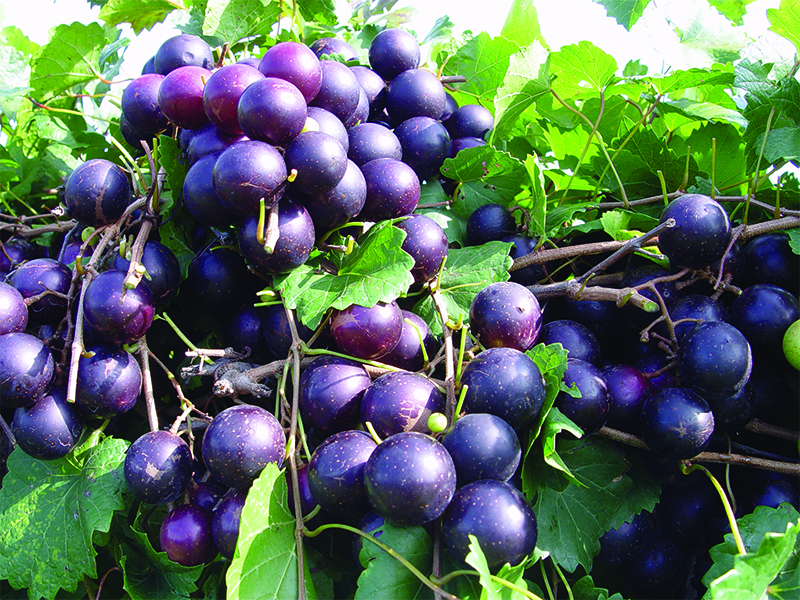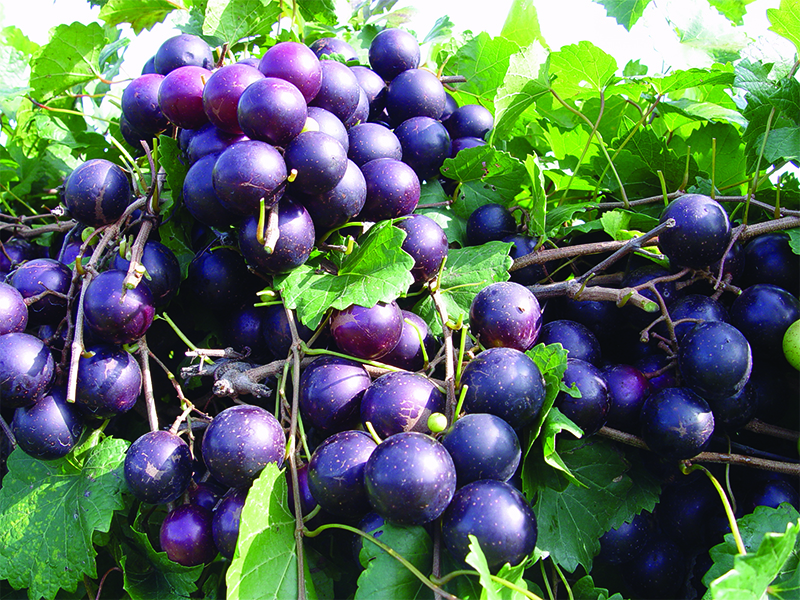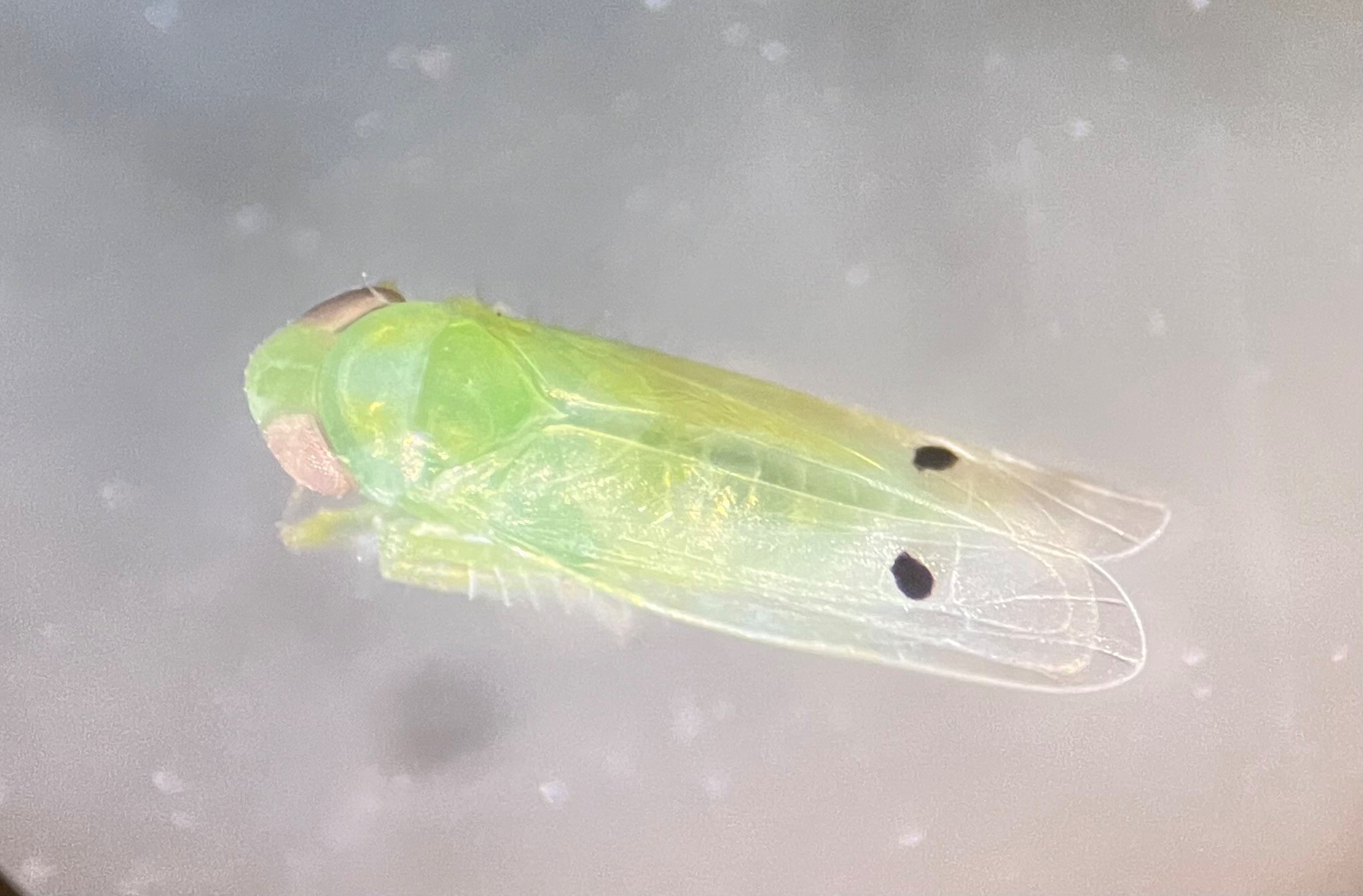The newly released University of Georgia ‘Paulk’ muscadine offers reliable yields for growers and bigger fruit for consumers.
Released by UGA College of Agricultural and Environmental Sciences plant breeder Patrick Conner, ‘Paulk’ produces significantly larger grapes than typical muscadine varieties. ‘Paulk’ is also self-fertile, meaning that it doesn’t require a pollinator plant to produce fruit. In the past, only female muscadine cultivars could produce large fruit, and they needed the help of a pollinator plant to do so.
“In the past, if the grower wanted a very large muscadine, one that’s about 15 grams or so, they had to plant the female cultivars. The primary cultivar that they would choose was ‘Supreme,’” Conner said. “With ‘Paulk,’ this is the first time that we’ve seen self-fertile flowers in combination with fruit that is very large, 15-gram size.”
Another important attribute of the ‘Paulk’ muscadine is its ability to consistently produce high yields.
With female cultivars, the plant’s yield can vary from year to year because sometimes the flowers don’t always open properly. If the flower doesn’t open, it can’t be pollinated, and fruit doesn’t develop.
With self-fertile flowers, nearly every flower opens and has the potential to be pollinated and produce fruit.
“It’s so hard for farmers to deal with the unknown. You do everything right but get a bad pollination season and you don’t have as much crop as you need,” Conner said. “The release of ‘Paulk’ takes that year-to-year variation away so they can get the crop load they need every year.”
‘Supreme’ is Georgia’s top muscadine cultivar for the fresh market, or those varieties sold to be eaten rather than for the juice market. ‘Paulk’ looks and performs very similarly to ‘Supreme.’ Conner hopes that ‘Paulk’ will replace ‘Supreme.’
“When it fully ripens, it’s got very good flavor. The vine is fairly vigorous compared to ‘Supreme.’ Two years ago, when we were testing the two cultivars at Paulk Vineyards, the ‘Supreme’ overcropped and we lost many of the vines over the winter. ‘Paulk’ had a similar crop load, but it came back the next year and could bear again, so it definitely is more vigorous than ‘Supreme,’” Conner said.
‘Paulk’ is the third variety Conner has released in the past five years. It follows ‘Lane’ which was released in 2012, and ‘Hall’, which was released in 2015.
“Growers have told us they want to replace all of their female cultivars with self-fertile cultivars. That’s in part why we’ve been releasing so many in the last few years. We’re trying to get a range of cultivars out there that they can do that with,” Conner said.
The only unknown regarding ‘Paulk’ is its ability to withstand freezing temperatures. Research trials are underway in North Carolina to test the muscadine’s cold hardiness.
To learn more about muscadine grape breeding, visit www.caes.uga.edu.




